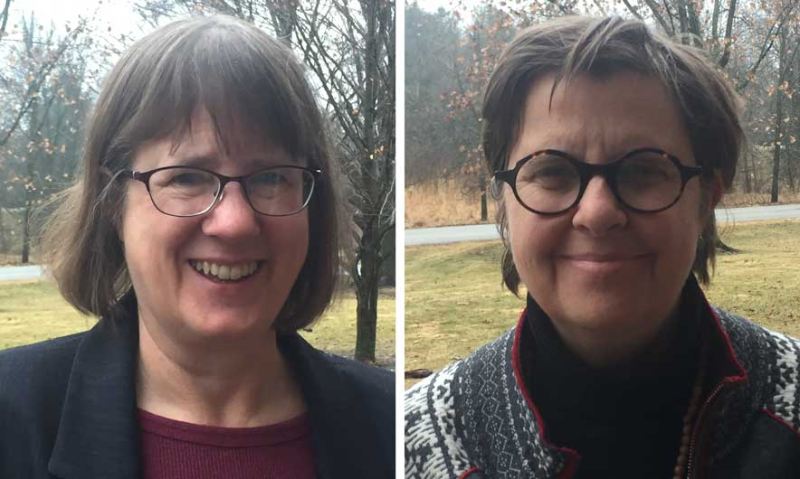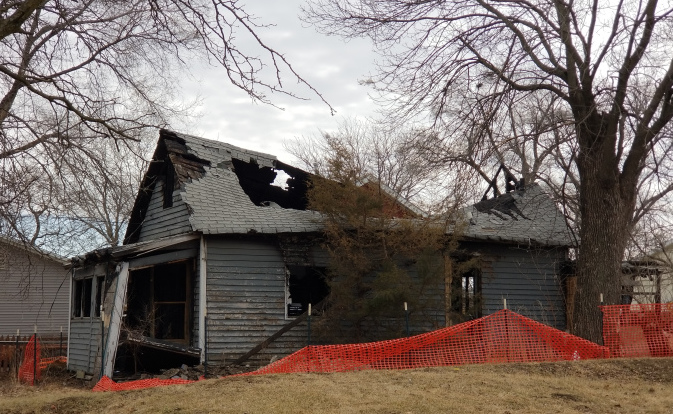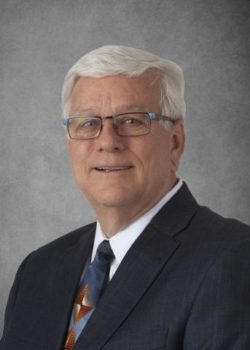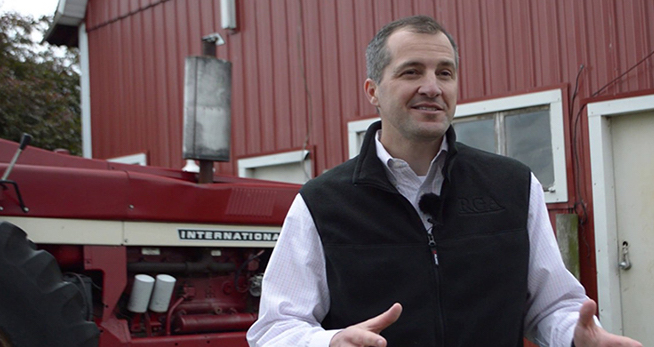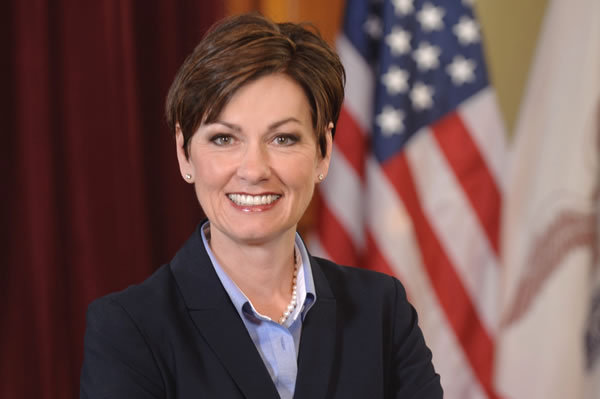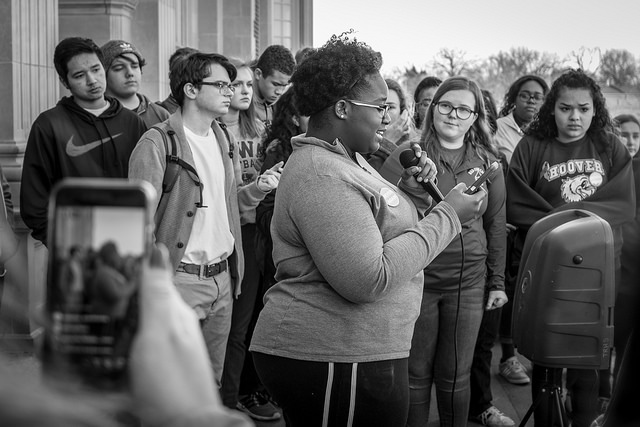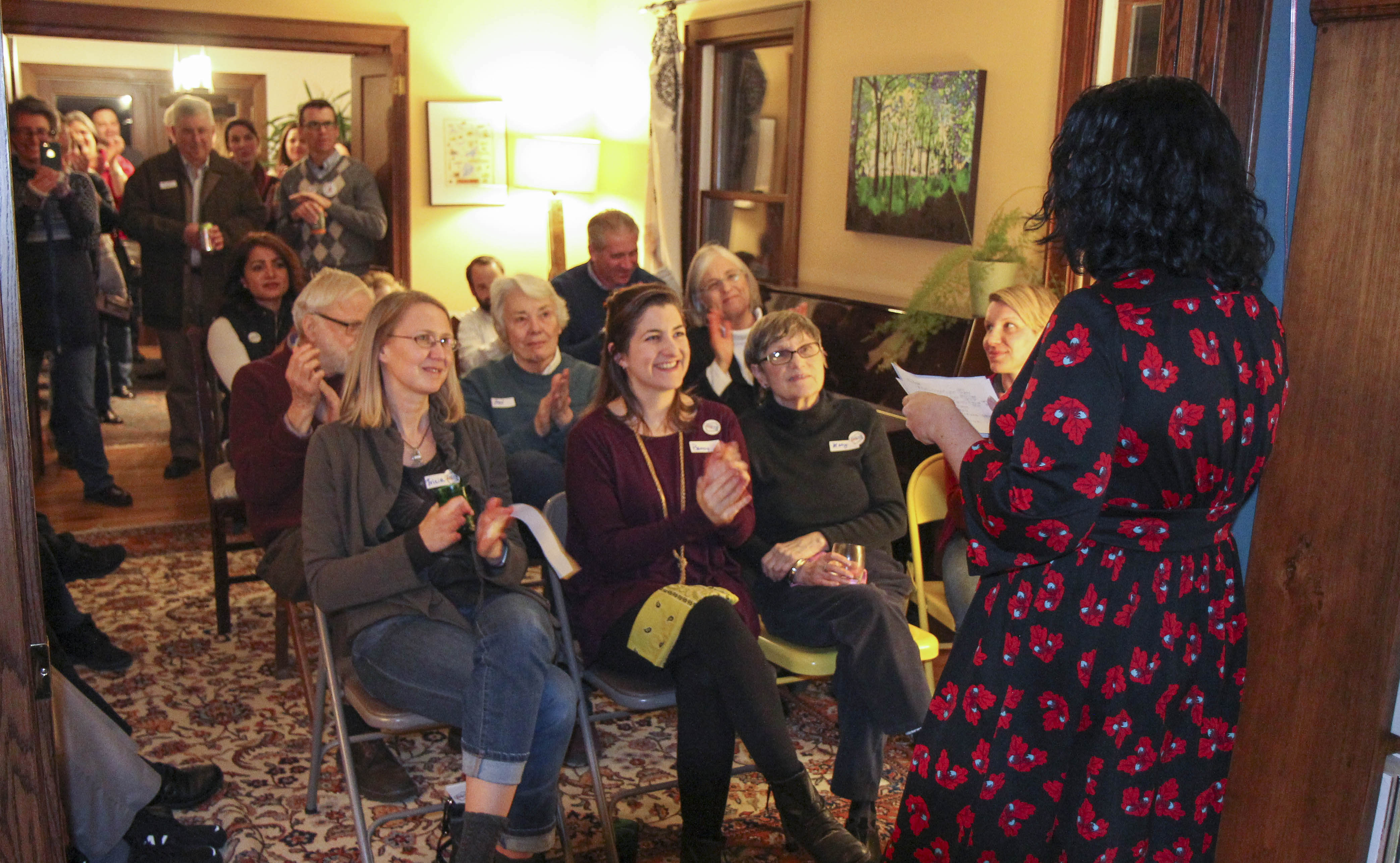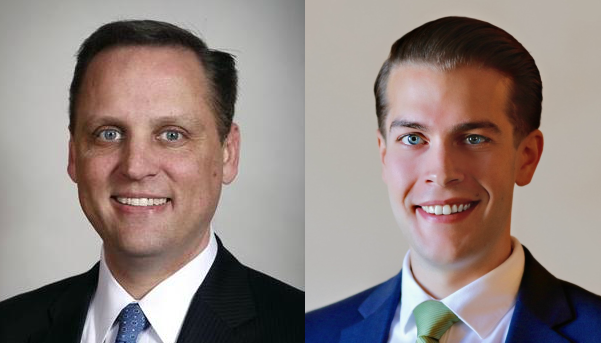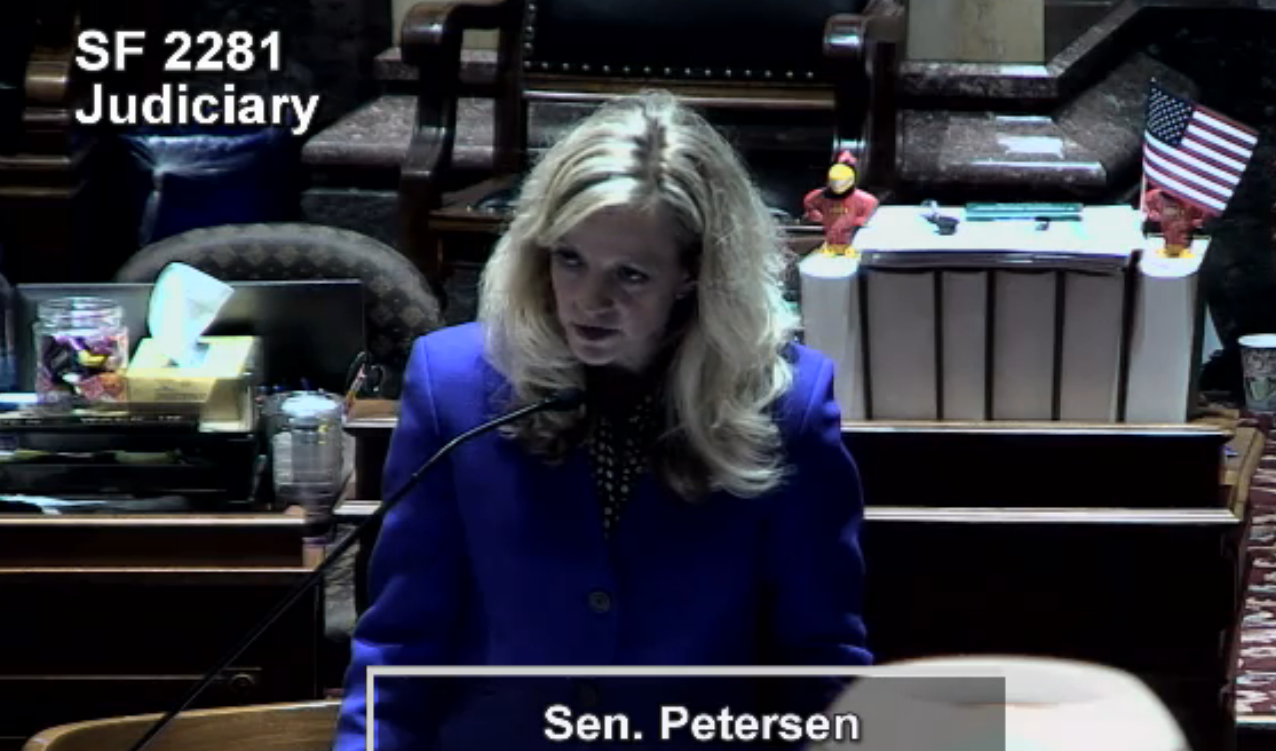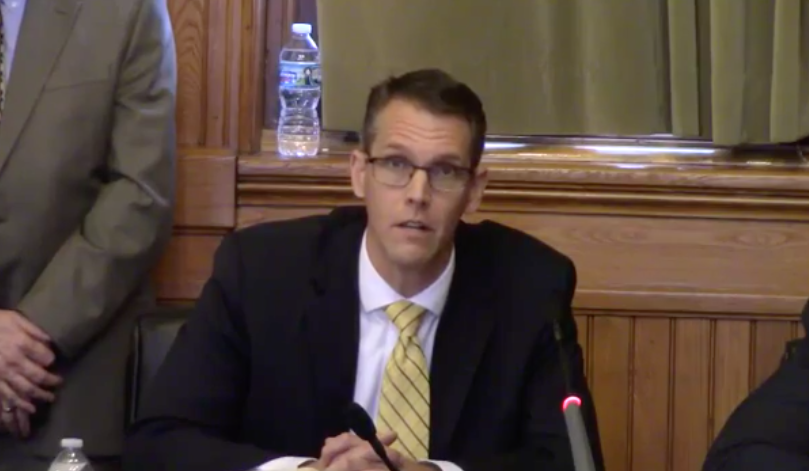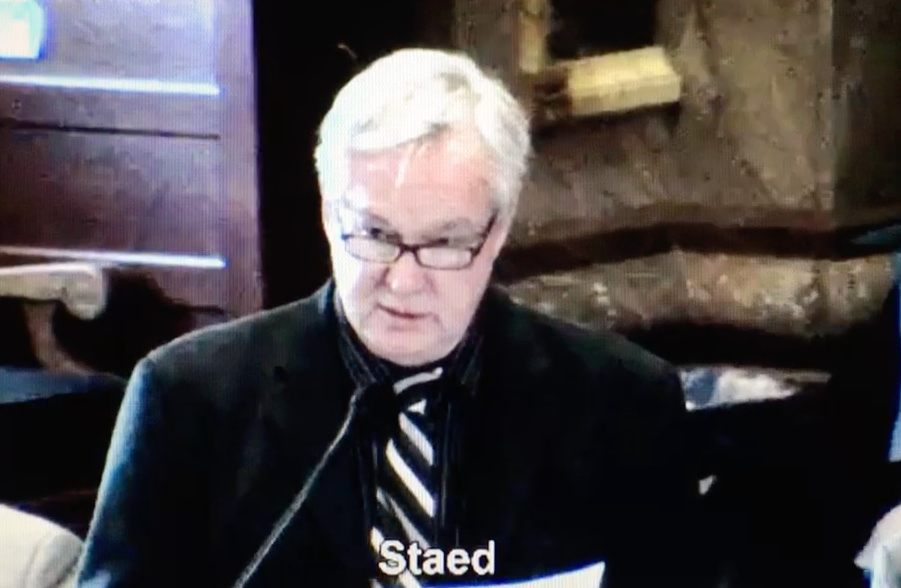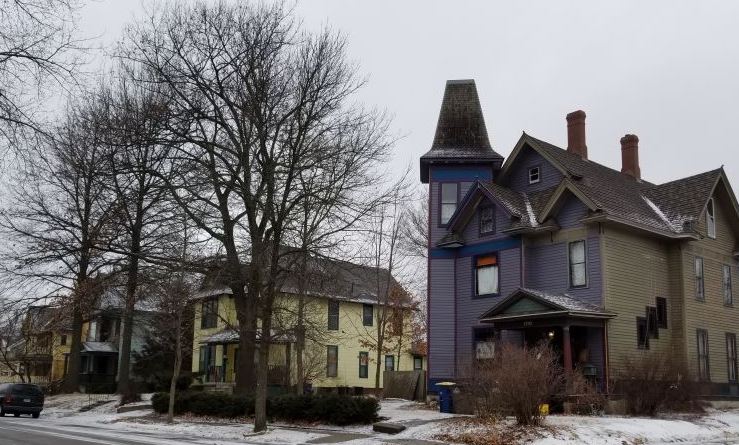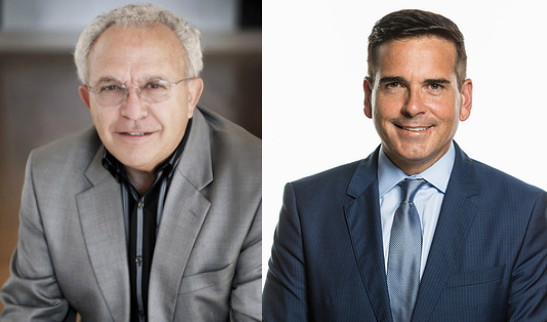Describing herself as a “pro-life, pro-2nd Amendment, pro-Israel, and pro-Constitution conservative,” Ginny Caligiuri made her quest for the Republican nomination in Iowa’s second Congressional district official today. Her candidacy was no secret; the former state director for the Congressional Prayer Caucus, National Governor’s Prayer Team, and US National Prayer Council had nominating papers out to be signed at the February 5 precinct caucuses and has been making the rounds at GOP county central committee meetings.
Bleeding Heartland profiled Caligiuri in January. You can keep up with her campaign online at GinnyGetsIowa.com, Facebook, or Twitter (at this writing, a protected account).
The announcement for Caligiuri’s kickoff event in Osceola on March 8 noted, “The 2nd District elected Donald Trump, and Ginny plans to help him accomplish what he was elected to do.” That line struck me as a subtle dig at Caligiuri’s competition in the GOP primary. Dr. Christopher Peters is a libertarian-minded Republican; as the IA-02 nominee, he announced in October 2016 that he would not vote for Trump.
I enclose below Caligiuri’s official bio and a map of Iowa’s Congressional districts. According to the latest figures from the Secretary of State’s office, the 24 counties contain 160,891 active registered Democrats, 141,798 Republicans, an 181,740 no-party voters.
The Cook Political Report and Larry Sabato’s Crystal Ball both rate this race as a likely Democratic hold for six-term Representative Dave Loebsack. For reasons discussed here, I think Republicans missed their best chance to defeat Loebsack by not targeting his district during the 2016 cycle. Trump carried the 24 counties in IA-02 by 49.1 percent to 45.0 percent, a huge swing from Barack Obama’s 55.8 percent to 42.7 percent margin over Mitt Romney in 2012.
Continue Reading...



